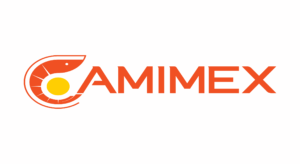On January 17th, as reported by MiningWeekly, the consulting firm Benchmark Mineral Intelligence (BMI) released its annual forecast report for the mining and metals industry. The report emphasizes that the industry is experiencing a moderate recovery due to the global economic slowdown.
BMI’s Chief Commodity Analyst, Sarbin Chowdhury, states that the firm is overall optimistic about metal prices this year, which are likely to average slightly higher than in 2023 and above the levels before 2020, although they will not return to the highs of 2022.
While there might be factors hindering the rise in metal prices, they are expected to be more stable compared to recent years. Chowdhury predicts that copper will lead the metal market due to supply tightness, while iron ore will lead the ferrous metal market.
Additionally, BMI optimistically believes that rate cuts in the US and a decrease in repurchase rates will also boost precious metal prices.
BMI expects that a slightly slower downturn in the US economy than anticipated might support a rebound in metal prices, although not a strong one.
Overall, BMI believes that the market this year will seek a balance between fundamentals and confidence, with most metal markets tightening in 2024, which is why the firm is optimistic about price expectations.
The power and construction industries will continue to drive demand for various metals, but household spending will remain limited and not lead to a significant increase in demand.
Key Minerals
BMI’s Commodity Analyst, Amelia Haines, states that minerals such as copper, lithium, nickel, and cobalt are extremely important for electrification, hence the firm forecasts significant growth in these industries this year.
The ratio of new lithium and copper projects to existing ones is at a historical high.
Haines explains that internationally, there is increasing concern about supply chain dependence.
Currently, the geographic distribution of minerals required for (clean energy) transition is highly concentrated, posing downward risks to global supply chain stability.
As such, BMI hopes to see major economies taking various measures to promote the development and production of key minerals, including encouraging domestic production and establishing more partnerships with resource-rich countries.
Conversely, the position of mineral-rich countries in the global supply chain also differs.
Haines says that as people seek greater benefits from natural resources, resource nationalism will intensify. This involves increasing regulation and policy changes, as well as rising taxes, more projects potentially being halted, and overall tighter regulation, negatively impacting investment confidence.
The firm also expects an increase in risks from government intervention, as the industry attracts more attention.
Government involvement in the mining industry may have a significant impact on the domestic mining landscape.
Haines expects that more businesses will need to cooperate with governments to avoid operational disruptions.
Trading Activities
BMI’s Senior Commodity Analyst, Olga Savina, expects that mergers and acquisitions among mining and metal companies will remain hot this year, driven by global energy transition and industry consolidation.
Consolidation is also one of the efforts by companies to bridge the gap in the supply and demand of key minerals.
She says that although the number of mergers and acquisitions is not much different from 2022, the amount of mining company acquisitions in 2023 is already close to the highest level of the past ten years.
Savina expects that large-scale investments in battery metals like lithium, as well as acquisitions in the copper industry, will continue.
ESG
Haines says that most mining companies are striving to achieve net-zero emissions by 2050, with many making significant progress in this area. With the increasing number of operational mines, decarbonization of mines is imperative, especially to maintain competitiveness.
One of the main pathways for decarbonization is using renewable energy to power mines and utilizing battery-powered vehicles.
Haines hopes that banks and other investors will exert more pressure on mining companies to implement stricter safety regulations.
To obtain funding, companies must improve their ESG credentials. Investors prefer companies with a strong green metal investment portfolio and steps taken to reduce emissions.
“The increasing importance of corporate social responsibility will change investment trends in 2024,” says Haines.
BMI explains that companies failing to improve their ESG credentials will face declining investment attractiveness and the risk of losing operating licenses.
Mining companies will also continue to adopt modern technologies, such as artificial intelligence, autonomous vehicles, and drones, to improve efficiency, safety, and competitiveness.
In this regard, Savina expects that technological advancements will be central as new technologies improve operational efficiency and safety. BMI predicts a significant increase in the use of artificial intelligence, autonomous driving technology, and drones.
Interest in deep-sea mining will rise, especially for copper, cobalt, and lithium.
BMI states that discussions around deep-sea mining regulations are on the verge of a long-awaited solution, with the first commercial deep-sea mining license expected to be approved.
The International Seabed Authority (ISA), responsible for regulating deep-sea mining, is expected to finalize the relevant regulations by the end of July, but several discussions will be postponed to 2025.
However, this leaves a legal loophole known as the “two-year rule,” which will allow mining companies to apply for commercial licenses this year.
For example, Metals Inc. plans to submit a deep-sea mining application after the ISA meeting in July this year and aims to start production by the end of 2025.
[Source – 上海有色网] BMI:总体看好今年金属价格 铜、锂、镍和钴等行业将呈现显著增长 https://news.smm.cn/news/102586622





